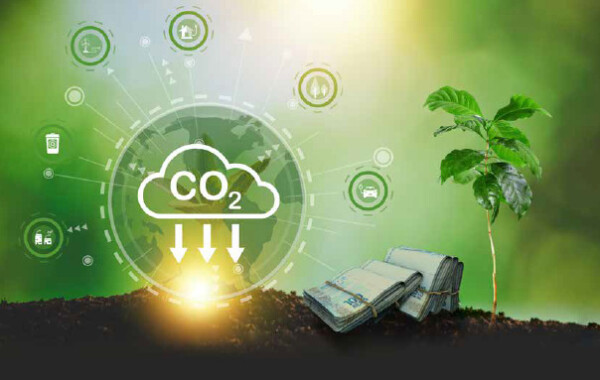In Brazil, the new “Plano Safra” encourages the adoption of sustainable, low-carbon practices
 On the international agenda, the month of June was marked by the Bonn Conference on Climate Change, where negotiators sought to move forward on discussions for a global climate adaptation goal, fair transition to sustainable societies and the loss-anddamage mitigation program, in preparation for decisions to be adopted at the United Nations Climate Change Conference (COP28), which will be held in the United Arab Emirates in December.
On the international agenda, the month of June was marked by the Bonn Conference on Climate Change, where negotiators sought to move forward on discussions for a global climate adaptation goal, fair transition to sustainable societies and the loss-anddamage mitigation program, in preparation for decisions to be adopted at the United Nations Climate Change Conference (COP28), which will be held in the United Arab Emirates in December.
Despite the timid progress, the Bonn Conference outcomes paved the way for the publication, during the COP-28 summit, of global initiatives on how to deal with the climate emergency. This document will provide the basis for the next round of country emission reduction targets for 2035 and 2040, as well as further efforts to adapt to the impacts of climate change.
As highlighted in the article by Rodrigo Lima1, given the lack of consensus in the negotiations related to agriculture, especially regarding the structuring of the Sharm El-Sheikh Group – created during the COP-27 meeting to address climate action on agriculture and food security -, this agenda should be resumed at the COP-28 summit.
In this sense, it is critical that Brazilian negotiators defend a holistic vision of lowcarbon agriculture, without labels, which values the efficiency of production systems in terms of increased yields, adaptability, resilience, and mitigation of the effects of climate change.
This is the reality of Brazilian coffee growing, which, due to the historical investment in research, technology transfer and good agricultural practices, has undergone a process of sustainable intensification since the 1960s, reducing the coffee area by 55.1% and increasing the yields of coffee crops by 400% – a true “land-saving” effect, which enables the preservation of native vegetation within farms.
Sustainable intensification, with the adoption of good agricultural practices that regenerate the soil – such as the contribution of organic matter and the maintenance of vegetation cover – results in a negative carbon balance of 10.5 tons of CO2eq per hectare of coffee grown, demonstrating an ability to remove much more greenhouse gases from the atmosphere than what is emitted by coffee production.
The new 2023/24 “Plano Safra”, launched by the federal government in the end of June, reinforces the incentive to adopt these sustainable practices in Brazilian agriculture, in line with the objectives of the Sharm El-Sheikh Group to unite climate action and food security.
The credit policy for the crop year, which began on July 1st, will reward environmentally complied growers with a 0.5% reduction in the interest rate on agricultural funding. To this end, these farmers must have the Rural Environmental Registry (CAR) analyzed and show one of the following conditions: having no environmental liabilities; being able to issue an environmental reserve quota; or being a current participant in the Environmental Regularization Program (PRA).
Farmers who adopt sustainable practices, such as sustainability certification, organic or agroecological production, and the use of bioinputs, rock dust and lime, among others, will also benefit from the program, although with a lower incentive.
As the reductions in interest rates can occur independently or cumulatively, the farmers who fulfills two requirements may have up to 1% decrease in the financial cost of their loans.
The Low Carbon Agriculture Program, now called the Program for Financing Sustainable Agricultural Production Systems (RenovAgro), maintains its purpose of financing practices such as the recovery of degraded areas, the expansion of crop-livestock-forest integration systems, and the adoption of conservationist practices of use and management and protection of natural resources.
The restoration of native vegetation areas on farms, the production of bio-inputs and bio-fertilizers, the installation of renewable energy generation systems, and other low greenhouse gas emission practices are also included in this credit program.
RenovAgro has expanded financial support for the recovery of degraded pastures, focusing on their conversion to agricultural production, with the lowest interest rate for corporate agriculture, 7% per year. This indicates Brazil’s ability to meet the world’s demand for food, fiber, and energy without the need to develop new acreage.
To measure the environmental benefits of this local capacity, Cecafé, in partnership with Imaflora and Prof. Carlos Cerri (Esalq/USP), is developing a new phase of the Carbon Project, focused on quantifying the balance of emissions and removals of greenhouse gases from Conilon coffee growing in the State of Espírito Santo. One of the situations being studied is the increase in carbon due to land use change, such as the transition from pasture to Conilon coffee growing.
The results will be important in demonstrating Brazil’s ability to meet the growing global demand for coffee in a sustainable manner, without expanding its production frontier, preserving forests, and contributing to mitigating the effects of climate change.
Marcos Matos
CECAFÉ CEO
Silvia Pizzol
CECAFÉ Sustainability Manager
1: TRANSITION OF AGRICULTURE AND FOOD SYSTEMS ON THE WAY TO THE COP28 SUMMIT, available at https://agroicone.
com.br/transicao-da-agricultura-e-dos-sistemas-alimentares-a-caminho-da-cop28/


Leave A Comment